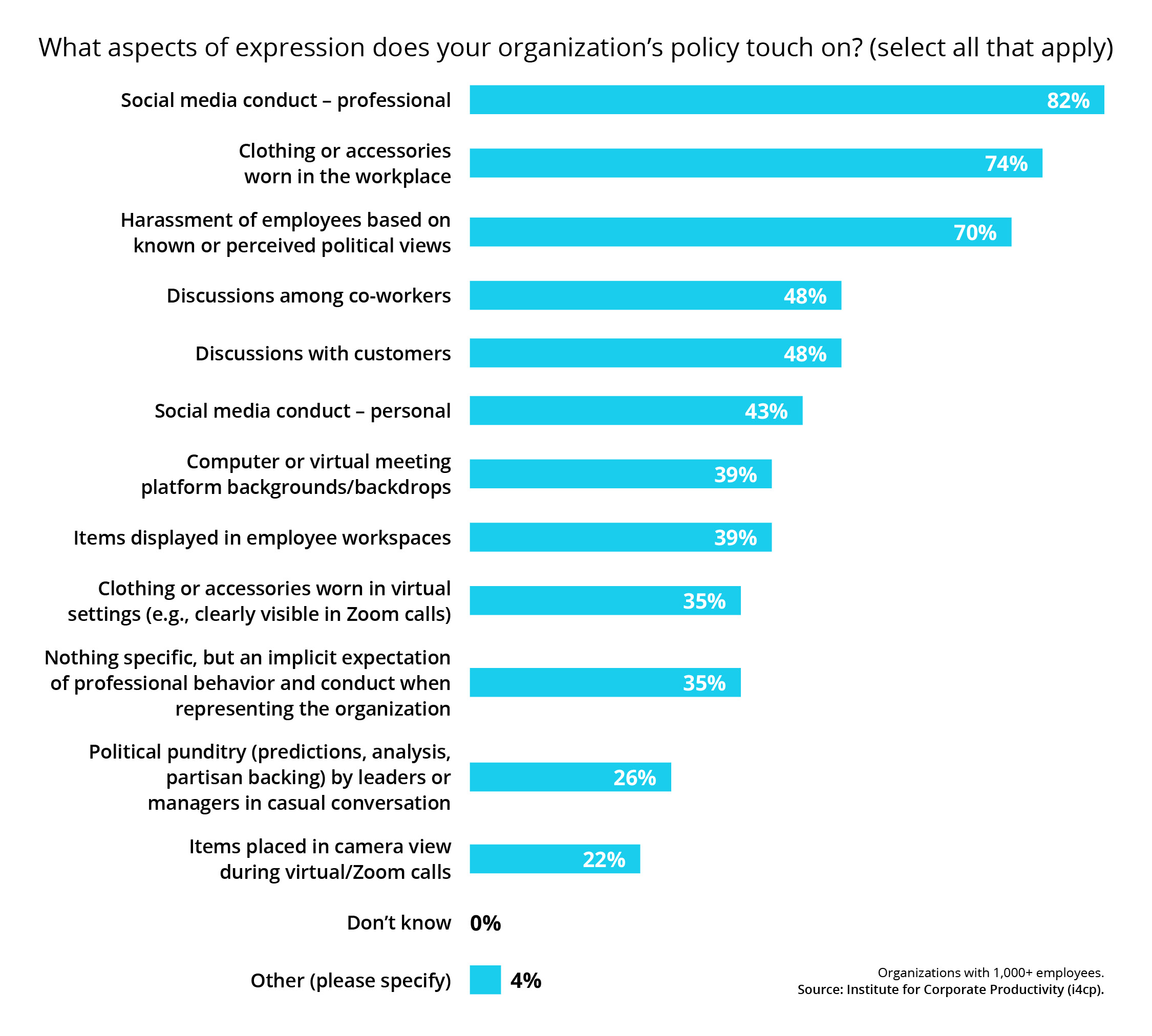Zoom Culture: Few Employers Have Policies About Your Political T-Shirt

When workers left their offices in March, there was no way of knowing that so many of us would still be working from home seven months later with no end in sight.
There wasn’t a playbook for this, and so for the most part, it’s been a period of trial and error and learning as we go. What wasn’t absolutely critical was placed on the back burner in favor of the important stuff like business continuity and getting everyone up and running from their kitchen tables.
But the uncertainty of the pandemic coupled with the unparalleled social and cultural upheaval we have all been living through has led to new and tricky questions for HR.
If many people continue to work from home well into 2021, as it is increasingly looking like will be the case, is now the time to address the elephants and donkeys in the room?
Most companies don’t have policies regarding their employees’ expressions of political or social justice opinions in the workplace—just one-quarter told us that their companies restrict or are creating guidelines regarding these issues—51% indicated that they are not. A smaller number (11%) reported that this is currently under consideration; 13% said they didn’t know.
But what about wearing or displaying political or social justice messaging in the virtual environment?
Among the organizations that have personal expression policies in place, 35% include guidelines for clothing or accessories worn in virtual settings (e.g., clearly visible in Zoom calls) and 22% include Items placed in camera view during virtual/Zoom calls that express sentiments about political or social justice issues.
What’s still the most important in terms of corporate policies about employee conduct and dress is in the context of social media and interactions that take place in the office.
We may see some evolution in HR polices regarding expectations of employees related to politics or social justice in the future, depending on how long the majority of office workers remain at home. But for now, it seems that most employers are relying on guidelines that were in place long before any of us ever heard of COVID-19.







